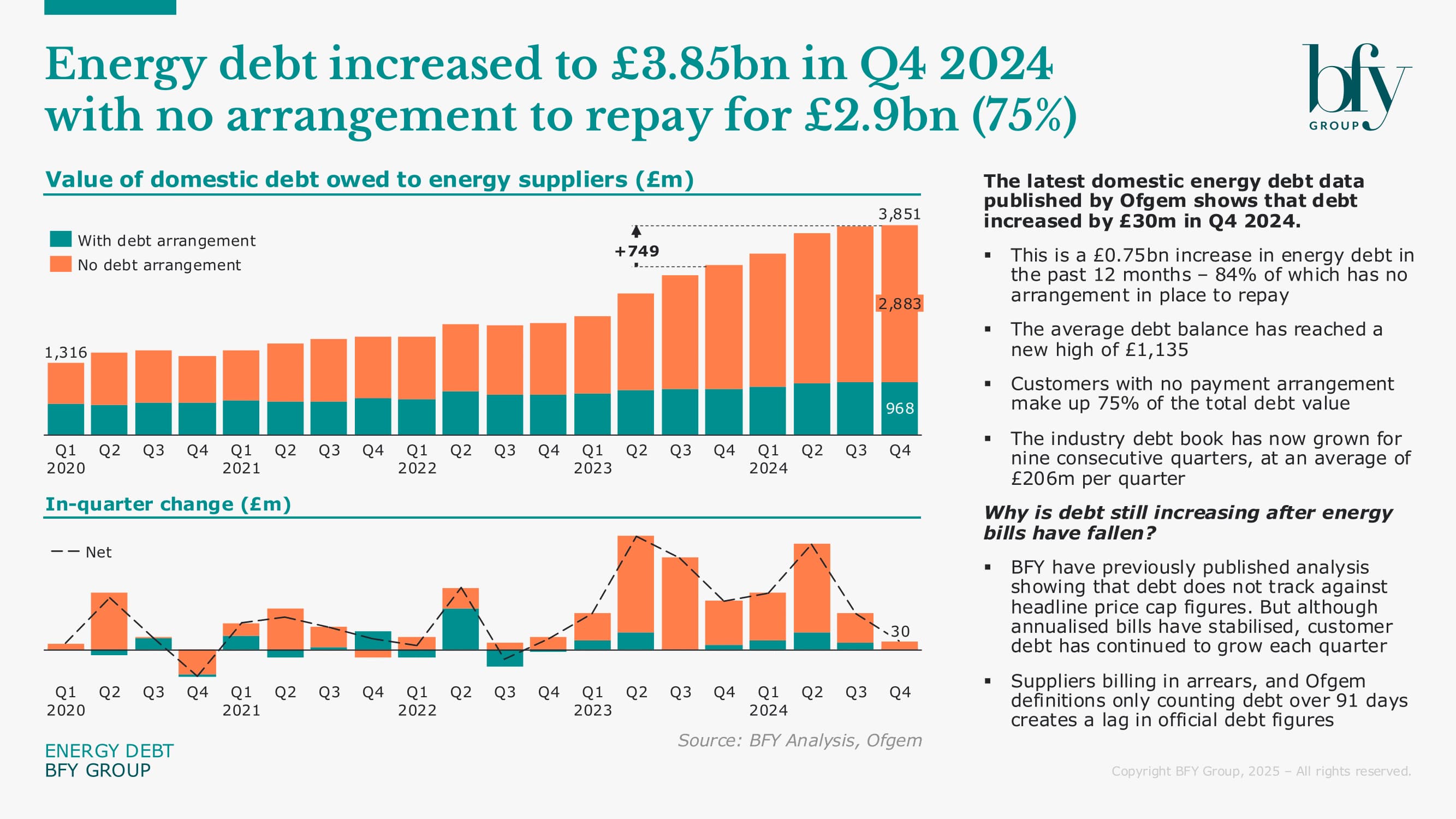Domestic energy debt hit a record £3.85bn in Q4 2024, rising by £0.75bn over the past year.
Although a seasonal increase from Q3 to Q4 is expected due to winter consumption, the latest rise of £30m was the smallest quarterly jump since 2022, indicating a potential shift in the crisis.
Key insights from Ofgem’s latest data:
- Winter energy consumption has driven total debt up by £30m to £3.85bn, marking the ninth consecutive quarter of increases. However, the rate of growth has slowed.
- Debt growth between Q3 and Q4 returned to pre-crisis levels, reflecting the slowest quarterly increase since 2022. The number of indebted households also saw a slight decline.
- Alarmingly, £2.9bn (75%) of the total debt has no repayment plan in place, with affected households owing an average of over £1,500.

Quarterly debt growth returns to pre-crisis levels
While total debt continues to rise, the pace of increase has slowed significantly. The Q3-Q4 jump, typically expected due to seasonal energy use, has reverted to pre-crisis levels, marking the smallest quarterly growth since 2022.

Encouragingly, the total number of indebted customers has declined between Q3 and Q4. However, this reduction remains less pronounced than in pre-crisis years or even in 2023.

The primary concern remains customers without a repayment plan. While the overall number of indebted households has fallen, the average debt among these individuals has continued to rise, now exceeding £1,500. This trend is a major factor driving the persistent increase in total outstanding debt.

Full scale of the challenge remains unclear
It’s crucial to note that these figures don’t account for customers paying by Direct Debit or debts under 90 days old. As a result, the total scale of energy debt affecting the industry and customers is likely even greater than reported.
Despite some improvements, significant progress is still needed to support customers in debt without a repayment plan. A meaningful reduction in total outstanding debt -something not seen since 2016 - will require more than just improved affordability.
Building trust and engagement with customers
Building customer trust and engagement is critical for encouraging energy efficiency, use of smart tariffs, and adoption of new technologies where possible. In a recent article, we highlighted the importance of transparency in industry debt reporting to rebuild customer confidence and support the broader energy transition.
Additionally, our report with So Energy outlines potential solutions for a nationwide fuel poverty strategy here.
For more on the implications of Ofgem’s latest debt figures, and how to enhance customer trust and engagement, contact Rachel Littlewood.
Rachel Littlewood
Director
Rachel leads our operational and financial turnaround engagements, helping to solve complex operational challenges while maximising commercial performance and customer outcomes.
View Profile

